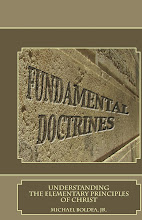The Gifts: Part 90
Tongues continued...
Now that we’ve come to understand the difference between speaking in tongues as a sign, and speaking in tongues as a gift, and we have acquired a basic understanding of what tongues entails, from speaking mysteries to God, to edifying oneself, to edifying the fellowship of the brethren once the tongues are interpreted, the question that remains to be asked and answered is whether this continues to be a viable manifestation of the Holy Spirit, and if this gift continues to be present within the house of God.
The reason we must ask and answer this question is because those who assert that the gifts of the Holy Spirit have ceased, simultaneously insist that gifts such as discernment, faith, and sometimes even word of knowledge or the working of miracles are still visible within the church from time to time, but as far as speaking in tongues is concerned, that has undoubtedly ceased and been done away with.
So was speaking in tongues a singular even during apostolic times, or is it an ongoing gift of the Holy Spirit to which we as believers have access today?
Once again, we must turn to the Bible for the answer to this question, because it is neither doctrine, nor personal experience, nor denominational edicts, nor our own personal preference that determines the truth, but the eternal word of God. Yes, the Bible has a monopoly on the truth!
As such, if you are not prepared to receive the truth of scripture with sincerity of heart, if you are not prepared to go beyond denominational doctrine, personal preference, or preconceived notions, I would ask that you read no further.
When we approach scripture with an open heart, when we come before the word of God with the requisite humility required of us as children of God, when we stand before the Bible willing to abandon preconceived notions or personal opinions in lieu of God’s holy word, we are as wise and teachable servants who recognize and acknowledge the preeminence of scripture above all else in our lives.
When it comes to spiritual matters, we must possess childlike faith, and believe a certain thing simply because the word of God said it, just as a child believes a certain thing simply because their mother said it. I believe what I believe not because a certain denomination believes it, not because men whom I respect believe it, but because the Bible says it is so, and I must believe the word of God.
In order to determine whether the gift of speaking in tongues is still viable, and still for today, one need only determine the purpose of the gift. The purpose of any given thing in our lives, determines its necessity, as well the frequency of its use.
Is the purpose of the gift of speaking in tongues one that could have been necessary only for the primary church, or those of the apostolic age, or is the purpose of the gift of speaking in tongues one that has been and continues to be necessary for every generation of believers since?
As we have already established the purpose of the gift of speaking in tongues is personal spiritual edification. In his first epistle to the church of Corinth, Paul made it clear that he who speaks in a tongue does not speak to men but to God, that in the spirit he speaks mysteries, and that he edifies himself. And so the only question that remains to be answered in order to determine if the gift of speaking in tongues is still for today, is do we as believers in this present generation need to be edified spiritually?
The answer to this question is a resounding yes!
Yes, we still require spiritual edification today; yes we still need to be built up spiritually today just as the forerunners of the faith needed it two thousand years ago.
Through the gift of speaking in tongues, a believer has a more profound fellowship with God, than through the prism of the rational or intellectual, and is edified in a greater measure than they might be through any other means.
1 Corinthians 14:14-15, “For if I pray in a tongue, my spirit prays, but my understanding is unfruitful. What is the result then? I will pray with the spirit, and I will also pray with the understanding. I will sing with the spirit, and I will also sing with the understanding.”
Once again we see Paul delineating both praying and singing, revealing that one can pray and sing in the spirit, just as readily as one can pray and sing with the understanding. When we pray with the spirit, or we sing with the spirit, we are in essence communing, communicating, and fellowshipping with God. We pray and sing with the spirit not for the edification of others, but for our own personal edification.
Contrary to what some continue to assert, Paul never denounced speaking in tongues, he never had an issue with praying with the spirit, or singing with the spirit, he was simply trying to establish order within the fellowship of the brethren, that whenever they were gathered together, and those who were not saved were present, there would be no confusion among them.
1 Corinthians 14:18-19, “I thank my God I speak with tongues more than you all; yet in the church I would rather speak five words with my understanding, that I may teach others also, than ten thousand words in a tongue.”
It was Paul the Apostle who wrote the epistle to the Corinthians, and it is in his own hand that he writes, ‘I thank my God I speak with tongues more than you all’, so yes, Paul spoke in tongues, and by his own admission more than all those who made up the church at Corinth, yet in the church he preferred to speak with understanding in order to teach others also. Paul understood the fact that he could speak in tongues, and edify himself at any time, because there are no restrictions on fellowshipping with God, and one need not be in a building with a steeple, or in a meeting with other brethren to have intimacy with the Father. He likewise understood that when the church gathered, their time together was limited, and as such it was more profitable for the entire body to be edified and taught, than for individuals to speak in tongues without an interpreter present only edifying themselves.
With love in Christ,
Michael Boldea Jr.
Friday, February 10, 2012
Subscribe to:
Post Comments (Atom)













1 comment:
Right on.
Post a Comment